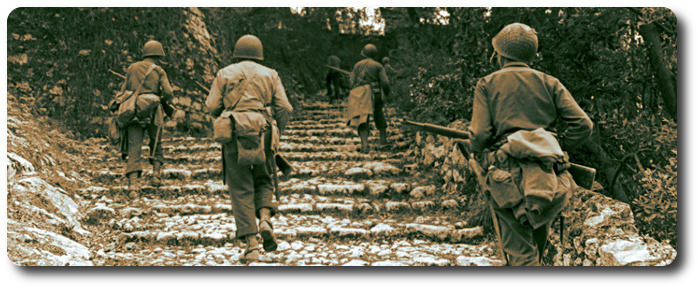Topic: Leadership

The Leader (1940)
FM 7-5; Infantry Field Manual; Organization and Tactics of Infantry, the Rifle Battalion; Prepared under direction of the Chief of Infantry, Washington, 1940
Necessity For Leadership
The condition for group solidarity is efficient and respected leadership. The vitality of a military unit flows from the full exercise of leadership in every grade. Commanders who are merely good administrators may obtain superficial results in training; in battle their results will prove a disappointment.
Duties and Qualities
a. General.…Leaders must develop the physical vigor, self-denial, willpower, and knowledge that will enable them to master difficult situations. The salient American characteristics of courage, self-reliance, initiative, and vigor provide excellent foundations for the leadership which can itself rise above the depressing influences of the modern battlefield and at the same time carry along the members of the group.
b. Example.…The leader must manifest to the highest degree the soldierly qualities which command the respect of his unit. He must share his troops' hardships and dangers.
c. Care of troops.…The leader must understand and appreciate the thoughts, problems, and feelings of the troops. In the development of an organization the first duty of a leader is the welfare of his men. Only when he has met this demand will there be that unity in his group which is the basis of victory. He makes every effort to protect the rights and interests of the troops. He does not fatigue them or expose their lives unnecessarily. He will, thus, in critical situations, on the march or in combat, be able to secure from every man the expenditure of his entire moral and physical force.
d. Force.…The leader requires strict and complete obedience. He intervenes decisively and promptly where there is any relaxation of discipline or damaging influence. Where necessary to the execution of his mission, he demands and receives from his unit the complete measure of sacrifice.
e. Firmness and justness.…The leader brings about conformity with required standards through the firm and impartial administration of justice. Standards required of trained troops should be gradually applied to a newly organized formation.
f. Sense of responsibility.…
(1) The leader must have a firm character and a sense of responsibility. He must be able to make prompt decisions in combat. Hesitation and indecision are more dangerous than errors in the choice of means.
(2) The leader does not in the presence of the unit add his criticism to adverse comments made by a higher commander. He accepts responsibility for the deficiency then and thereafter.
g. Initiative.…The leader must not only possess initiative himself but he must foster its proper exercise by others. During training periods he avoids infringing upon the prerogatives of his subordinates. In combat he cannot be everywhere, and in his absence his subordinates must feel free to act vigorously in accordance with their mission and the situation, without awaiting precise instructions covering every point. They must feel that they will be supported in their exercise of a proper initiative.
h. Newly assigned leaders.…A newly assigned leader who takes over a battle unit is under critical observation. He must demonstrate qualities of leadership to take his place as leader in the minds of the group.

